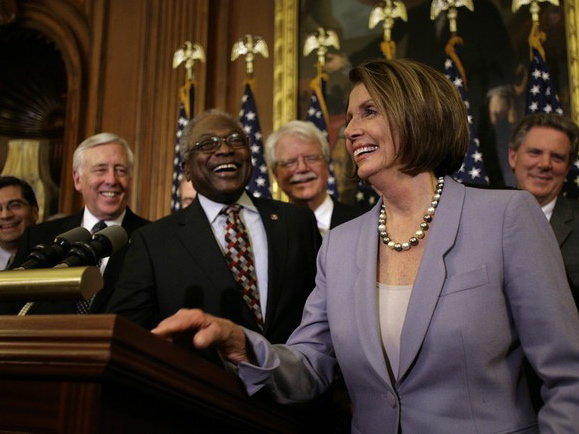I must make a confession. At the risk of being labeled a RINO, I need to express my support for universal health care. Before being trashed by my fellow fiscal conservatives and being hailed by hapless progressives, let me explain.
To me, universal health care provides a defined benefit to all members of society with the purpose of minimizing financial risk while increasing access to health services. Ultimately, the goal is to produce improved results to the overall health of citizens. I’d like to examine this definition a little more closely.
I simply believe that every American should be afforded the opportunity to be insured. This defined benefit should, however, be a choice. A choice and a requirement are two entirely different things.
Any insurance actuary will tell you that increasing the number of participants in an insurance pool by adding unhealthy people increases the risk. Increased risk leads to higher costs. In my opinion, this is where the health care debate hits a snag and partisan hackery takes control.
If we’re all created equal, then why does income factor into how much one pays for health care? If we’re defining the benefit as being guaranteed the right of access to health insurance, then why does the guarantee of access include income considerations? Health care is about age and health. It isn’t (and never should be) about income. Therefore, all Americans of the same age group should be offered health care at the same cost, regardless of health or income. It’s a shared risk. If one chooses not to take the health care coverage due to financial or personal reasons, then so be it. That’s a choice. As you will see, these choices have consequences down the line.
The main long term challenges to health care are the choices people make. There are two types of Americans in this country. There are people that succeed in life due to smart choices and there are people that fail in life because of poor choices. This certainly applies to making smart long term health decisions that minimize financial and health-related risks later in life.
Our government has a great deal of culpability when it comes to enabling poor choices. Taxpayers help millions of people make ends meet through the funding of food assistance, yet the government does very little to monitor and control the types of foods that people can purchase while receiving this assistance. If the goal of universal health care is to produce better results, how in the heck does being able to buy a ‘take and bake’ pizza accomplish that goal? How does an energy drink, a soda or a bag of chips produce better results? The rising costs associated with obesity and poor choices are the main drivers of elevated long term health care costs.
Since I was a kid, the government has been educating the public on the healthy lifestyle provided by the food pyramid. Yet when it comes to purchasing the very things that make up the food pyramid, there is no control whatsoever on the choices that are allowed to be made. Fruits, vegetables, grains, dairy and meats should be the included products taxpayers subsidize. If it hasn’t lived, it shouldn’t be on your plate when someone else is buying the healthy meal. Forcing people to make smart food choices will help produce better long term health results.
Now that we’ve addressed allowing everyone the choice to have health care coverage and how to minimize the long term risks of poor choices, let’s address minimizing costs. To me, this is the most misunderstood aspect of universal health care.
Why does minimizing costs only consider the upfront price of affording insurance? Eliminating free market choices that competition provides will inevitably drive up the costs of a government controlled system. One only needs to look at the relationship between the increasing amount of money spent on education and the subsequent diminished results for a shining example of this theory in action. I propose looking at minimizing health care costs in a different way.
I am of the belief that no person should lose everything they have saved, simply because they get sick. If someone in their 60s works their entire adult life and made smart choices that result in a comfortable retirement, they shouldn’t lose it all because of a health challenge. No American should be a contributor to what we all enjoy and then be left out in the cold when they most need what they’ve earned.
Instead of providing a health care system where everyone gets covered through taxpayer subsidies, I propose a system where the government rewards smart long term choices. What motivation does a citizen have to prepare for their own retirement through smart choices if the government provides everything needed from cradle to grave? The current system creates a permanent sense of entitlement and proves to be nearly impossible to break long term.
Instead, we should be protecting assets acquired through savings that are budgeted for retirement. If a couple saves $500,000 as a nest egg, we should be working to guarantee a large portion of that savings if illness occurs. This creates an environment of success through motivation and not one of enablement. If a taxpayer knows that their life savings will be protected due to health challenges, I believe the likelihood of making smart long term choices will be dramatically increased.
In an environment where some states pay welfare recipients more than teachers, the current system is not structured to encourage smart long term planning. Until we use the government to reward long term success through wise choices, we’ll be stuck continuing to compensate the never ending cycle of short term failure.
The current system forces taxpayers to subsidize guaranteed health care and food assistance. Yet, this food assistance is not required to be healthy choices, which leads to vastly expensive long term health consequences. Ultimately, these consequences are also subsidized by the taxpayer. Can anyone else see this circle of imminent failure?
There is no end to the escalating costs and no motivation to make wise choices that pay off later in life. With my proposal, not only are people given a choice to acquire health care, but they are also encouraged to make wise financial, health care and food choices that have much less expensive results in future years. At the very least, my proposal focuses on saving taxpayer subsidies over the long haul and not just expanding government reach in the short term.
John Mumper is married with two young daughters. He was born in Wisconsin and grew up on various types of farms throughout the state. John was educated at UW-Whitewater with degrees in Political Science and History and has traveled extensively throughout the world.
Today, he works closely with various types and sizes of manufacturers and building products suppliers as an outside salesman. In his spare time, he enjoys the Milwaukee Brewers, Green Bay Packers, politics and brewing his own powerful beers.







